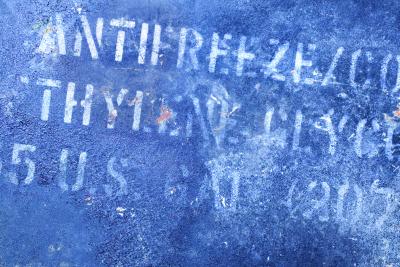
Proper radiator maintenance is critical for the safe operation of your car. Antifreeze flows through your radiator, protecting your engine from extreme operating heat and from freezing overnight. If your car has a poor electrical ground connection, your antifreeze may start to conduct electricity, which can cause radiator corrosion. Antifreeze can also conduct electricity if the additives in the fluid have degraded over time. Test your antifreeze with a voltmeter.
Allow your car to cool completely if it has been in operation in the past two hours.
Remove the radiator cap carefully. Turn it one-half of the way off, and allow any built-up pressure to escape. Then take off the cap.
Insert the positive lead of the voltmeter into the antifreeze. The lead should be labeled with either a plus sign or the word "positive."
Attach the negative lead onto the negative battery post. This will be indicated by a minus sign or the word "negative."
Check the voltmeter reading. If it is over 2/10, your antifreeze is conducting electricity. Below 1/10 is ideal for optimal radiator performance.